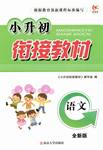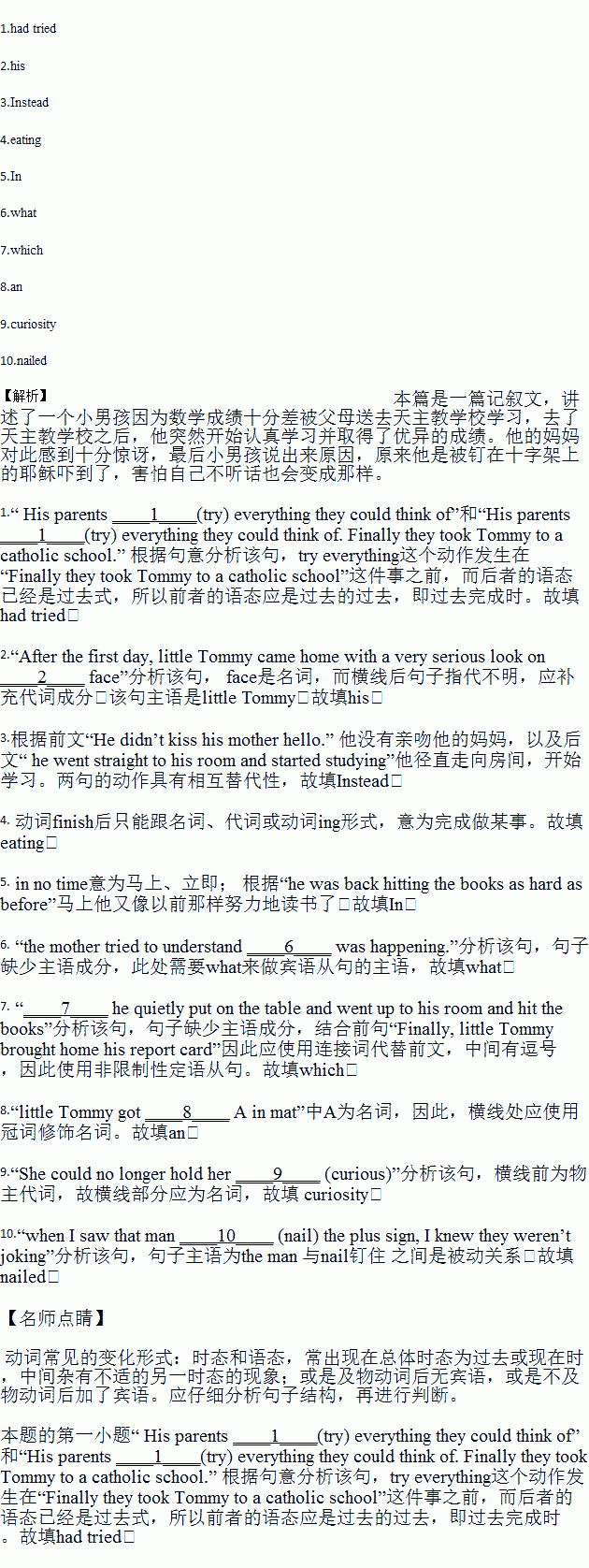题目内容
Little Tommy was doing very badly in math. His parents 1.(try) everything they could think of. Finally they took Tommy to a catholic school.
After the first day, little Tommy came home with a very serious look on 2. face. He didn’t kiss his mother hello. 3., he went straight to his room and started studying. Books and papers were spread out all over the room and little Tommy was hard at work. His mother was surprised. She called him down to dinner and as soon as he finished 4. (eat), he went back to his room, without a word. 5. no time he was back hitting the books as hard as before. This went on for some time day after day while the mother tried to understand 6. was happening.
Finally, little Tommy brought home his report card, 7. he quietly put on the table and went up to his room and hit the books. His mom looked at it. To her surprise, little Tommy got 8. A in math. She could no longer hold her 9. (curious). She went to his room and asked, “Son, what was it? Was it the nuns?”
Little Tommy looked at her and said, “Well, on the first day of school, when I saw that man 10. (nail) the plus sign, I knew they weren’t joking.”
 学而优衔接教材南京大学出版社系列答案
学而优衔接教材南京大学出版社系列答案 小学课堂作业系列答案
小学课堂作业系列答案 金博士一点全通系列答案
金博士一点全通系列答案

 B.
B. 
 D.
D. 